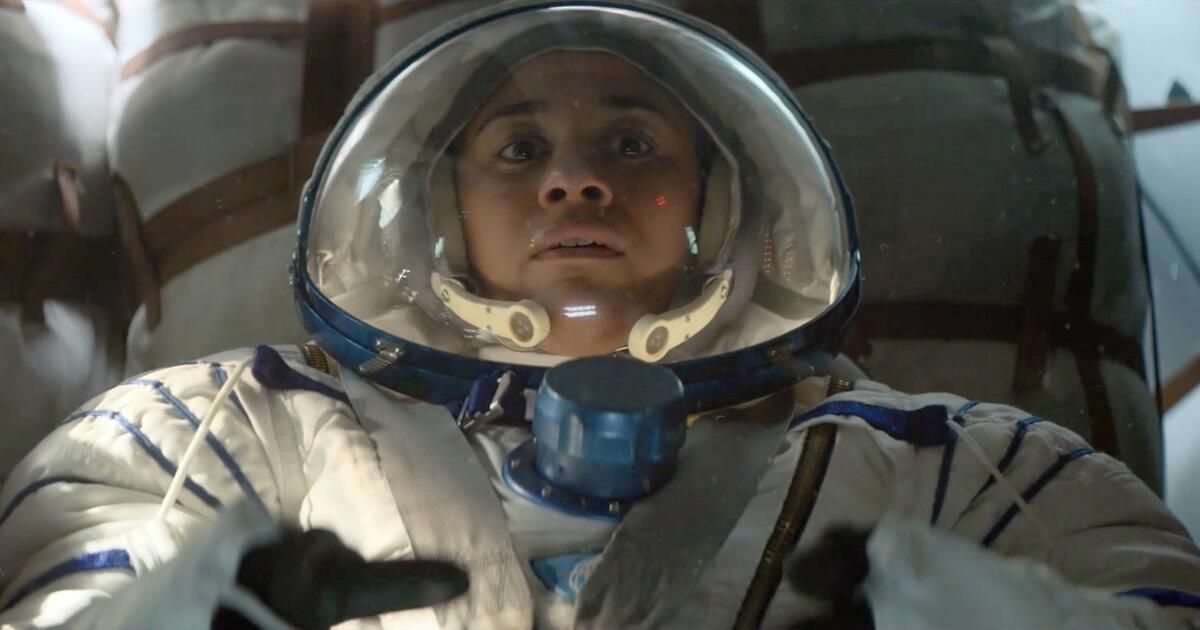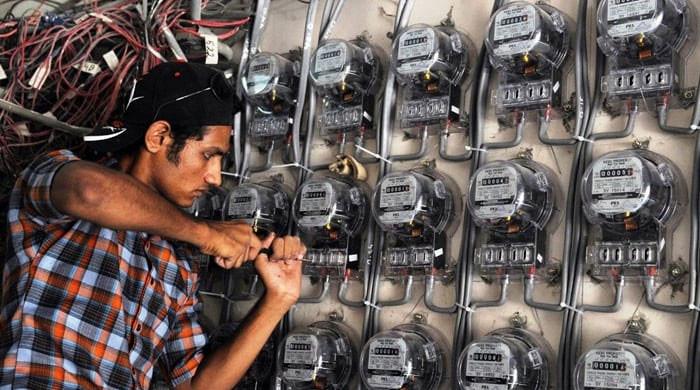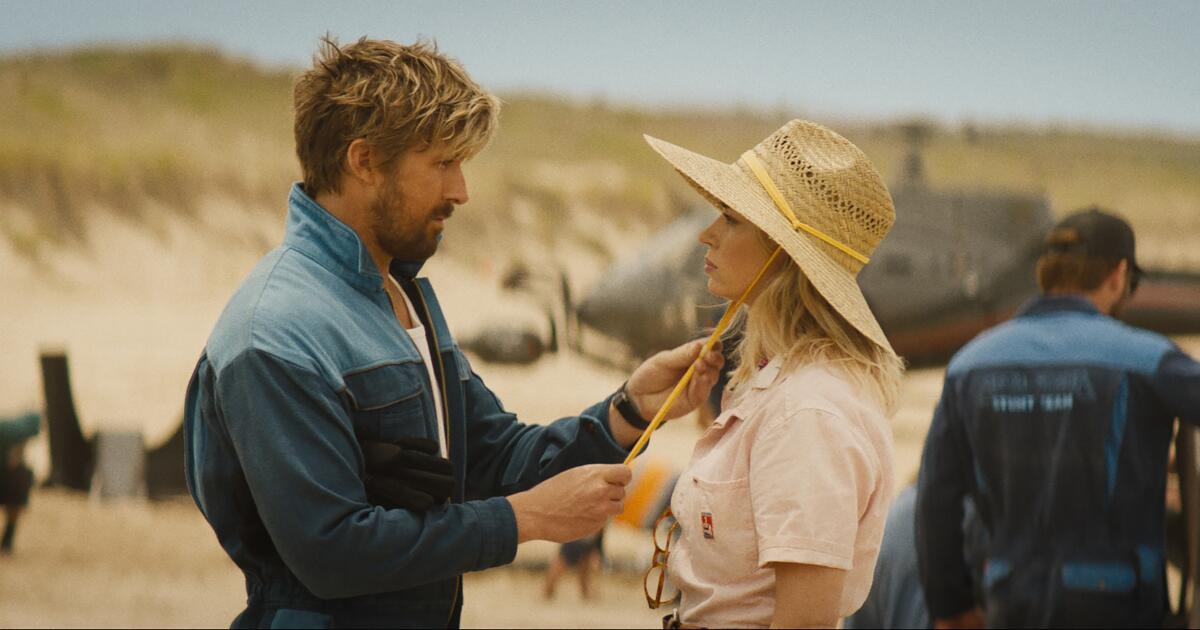At the beginning of “ISS,” the new thriller set on the International Space Station directed by Gabriela Cowperthwaite, three Russian cosmonauts sing “Wind of Change” by the German band Scorpions. The 1991 power ballad became widely associated with the dissolution of the Soviet Union and the end of the Cold War. As the cosmonauts sing, full of nostalgia and emotion, their American counterparts, a trio of astronauts, gently tease them, but the atmosphere is jovial.
The Cold War is in the past and aboard the International Space Station, cosmonauts and astronauts have formed an international family that speaks Russian and English and works side by side in their research. Through the dome, they have a view of the Earth where there are no visible boundaries. But that sense of unity hangs on a delicate balance. The space station may orbit Earth, but it is still an extension of “below.” What happens there resonates aboard the ISS, a concept explored in this quiet but gripping suspense thriller.
Ariana DeBose plays Kira, the new girl aboard the space station, who enters into a unique and close-knit dynamic between the Russian and American crew. Her carefully calibrated social ecosystem is called into question after the group witnesses some kind of nuclear attack on the planet, with orange flames engulfing an entire continent. Both the Americans and the Russians are separately instructed to seize control of the space station by any means necessary, and suddenly every conversation, every action is charged with meaning: Is there still a fragile agreement or is it all a manipulation?
Written by Nick Shafir, “ISS” is more of a chamber piece than an action film, with a story that distills global problems into a miniature microcosm, drawing on deeply human emotions to motivate the characters: love, fear, impulsivity, courage. There's Kira's unease as an outsider, and she acts as the audience's avatar aboard the ship, but Shafir also puts a “Romeo and Juliet” spin on this story, with a secret romance and the big emotions driving it. .
A scene from the movie “ISS”
(Bleecker Street/TNS)
There is a sense of authenticity and realism in Geoff Wallace's production design, as the station appears to be a real space inhabited by humans over a long period of time. They also achieved the zero-gravity look with the actors performing in straps with the lines digitally erased (although sometimes the appearance of the harness can be seen in the hook of their pants). At 95 minutes, there's efficiency in both the storytelling and the art, Richard Mettler and Colin Patton's tight editing placing the audience well and keeping the information spare but clear.
It is Cowperthwaite's direction and the excellent cast that bring to life the cold anxiety that permeates every interaction, heightening the tension in this claustrophobic space. The film's most heartbreaking scene involves two crew members simply making a sandwich.
While DeBose is positioned as the star and heroine of the film, the actors around her make it interesting, including Chris Messina and Costa Ronin as opposing commanders, and John Gallagher Jr. and Pilou Asbaek as characters who exhibit ever-changing reliability. . Masha Mashkova turns out to be the heart of the story. DeBose is more stoic, her character wary of her but also somewhat innocent of her. Although Kira seems hypervigilant, it takes her a while to fully understand the small-scale war going on aboard the space station.
“ISS” is a story with big political ideas and drama driven by human emotions and behavior. It is a reminder that our peace is often fragile and too easily broken, even among neighbors and friends, and that wars that happen far away happen to all of us, too. It's a surprisingly biting story for what appears to be a light genre thriller, but then again, genre thrillers can be the best vessels for these types of messages.
Katie Walsh is a film critic for the Tribune News Service.
'ISS'
Classification: R, for some violence and language.
Execution time: 1 hour, 35 minutes
Playing: In wide release on Friday












